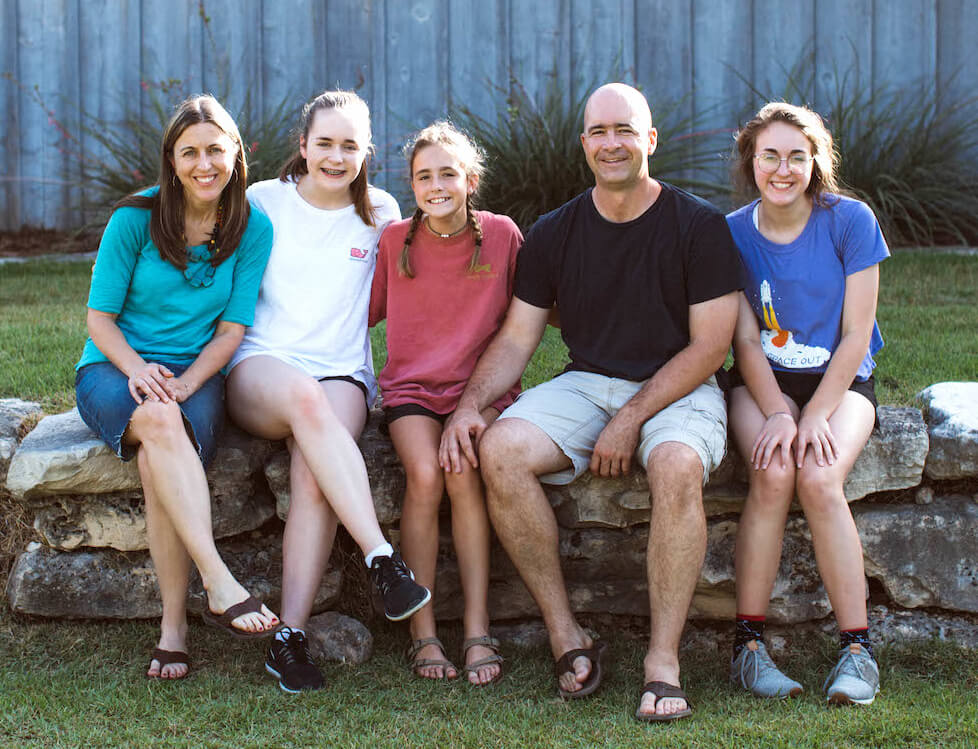Recently, we asked speakers, musicians, and other trained professionals to offer encouraging words for everyone sheltering in place. Today, Katie Ashby, a licensed therapist practicing in Houston, Texas, is sharing four ways we can grow together during this time.

In the past few weeks, I have heard the following refrain spoken in various ways:
“I would never have chosen for the world to shut down, but I’ve longed for it for years.”
I’ve needed a good, rich conversation with one person instead of eight disjointed conversations as I rush from one place to another. I’ve longed for my kids to connect as siblings and rediscover the simple joys of life. I’ve needed the non-essentials to be stripped away so my pain and anxiety could show me what I really value.
Last week, a neighborhood friend posted a picture of his wife with the following caption: “Day three of no sports: I noticed a lady sitting on my couch. She seems nice. I think I will talk to her.” Many of our creature comforts have been removed. Could this discomfort be a time of opportunity?
The phrase “post-traumatic growth” describes the experience of individuals who experience positive change through struggling with a crisis. These times can help individuals connect with deeper meaning and clarify life direction. Consider the following to help transform our collective crisis into personal post-traumatic growth.
Our routines can lead to a sense of auto-pilot or mindlessness in which we are less aware of what we are actually feeling, thinking, or doing. Pause today and bring your attention to what you are feeling, especially when you experience a negative emotion. How do you normally cope with this feeling? When you feel insecure or unsafe, do you seek more and more information? You may withdraw or may make a certain person your refuge. You may get demanding or controlling. You may shut down or distract yourself with activity.
Use your body to change your experience of a negative emotion. You can reduce the intensity of your anxiety, anger or sadness by focusing on your breath and intentionally bringing your body into a relaxed state. Then look for the truth and rehearse it. Today you can take a step toward change by giving your brain a more accurate message about your identity and safety. “The truth is that I have a loving Father who keeps me in his care. When I know this to be true, my coping strategies are unnecessary. I can rest, trust, and engage in the moment.“ Then practice these behaviors in real-time.
We grow and feel restful when we are connected to others in healthy ways, recognizing our common humanity. Whether you are texting, emailing, calling, video chatting, or writing old fashioned letters, social support is a well-documented buffer against mental illness and stress response. None of us can go it alone!
In Genesis, Jacob physically wrestles with God during one of his moments of deepest anxiety. He recognized that what he most needed was God’s blessing in the midst of his crisis. Dig deep and stay present to the Lord in your suffering. Don’t settle for any less than his truth and his blessing!